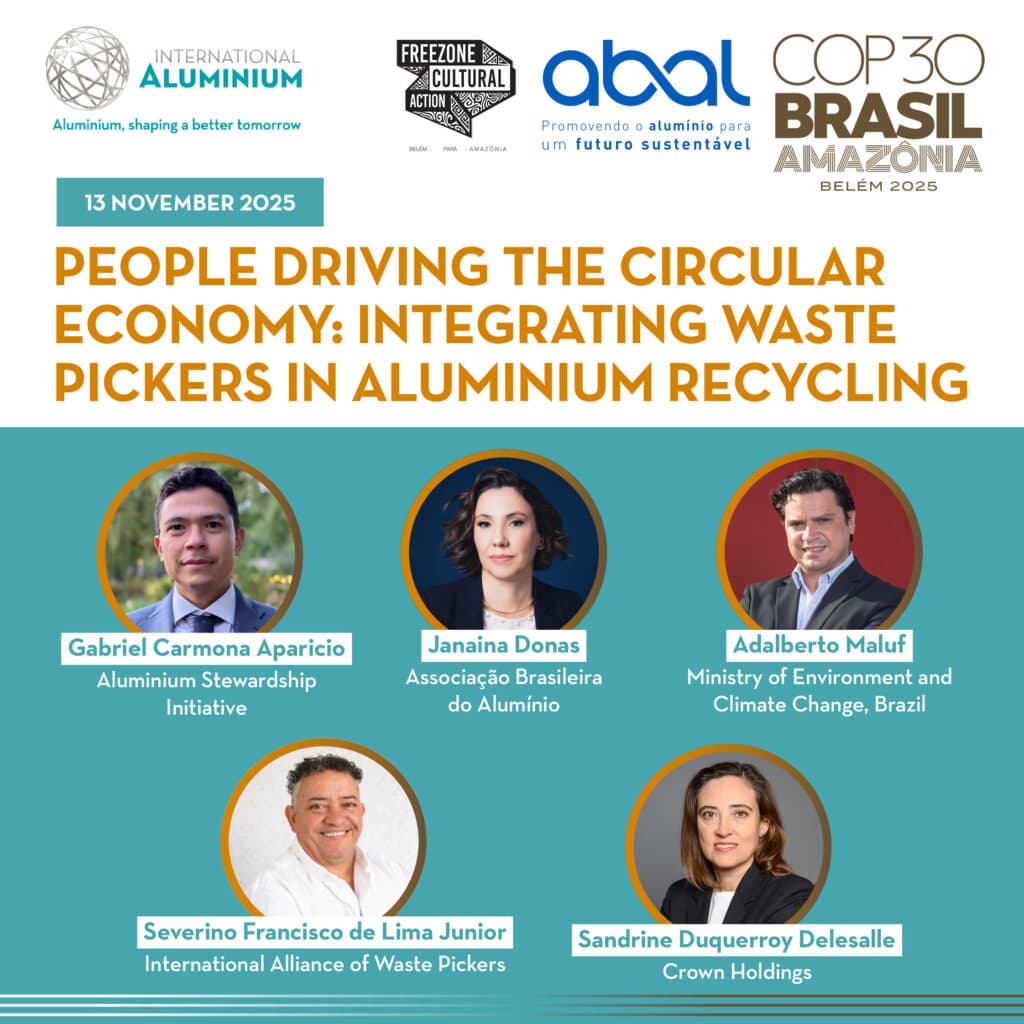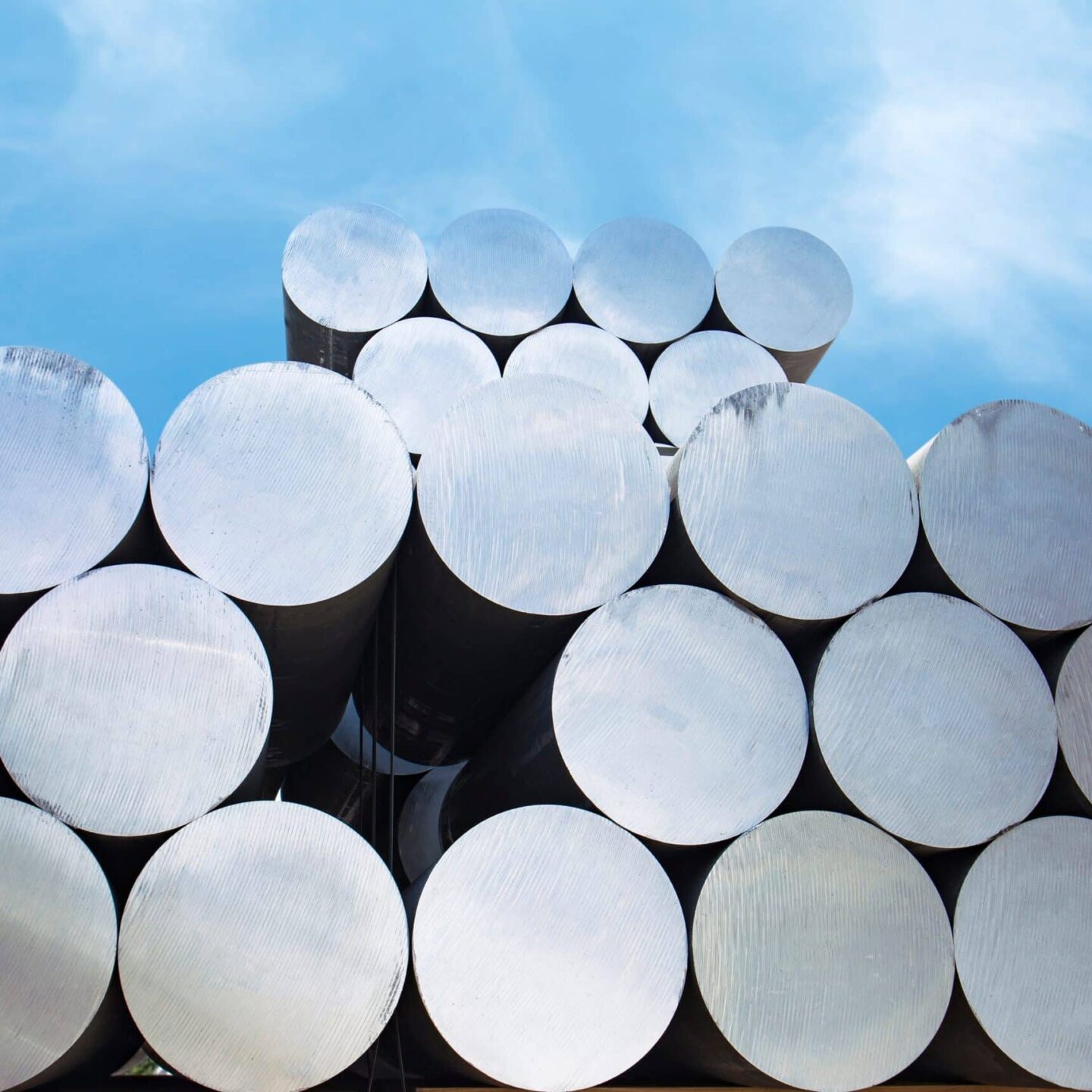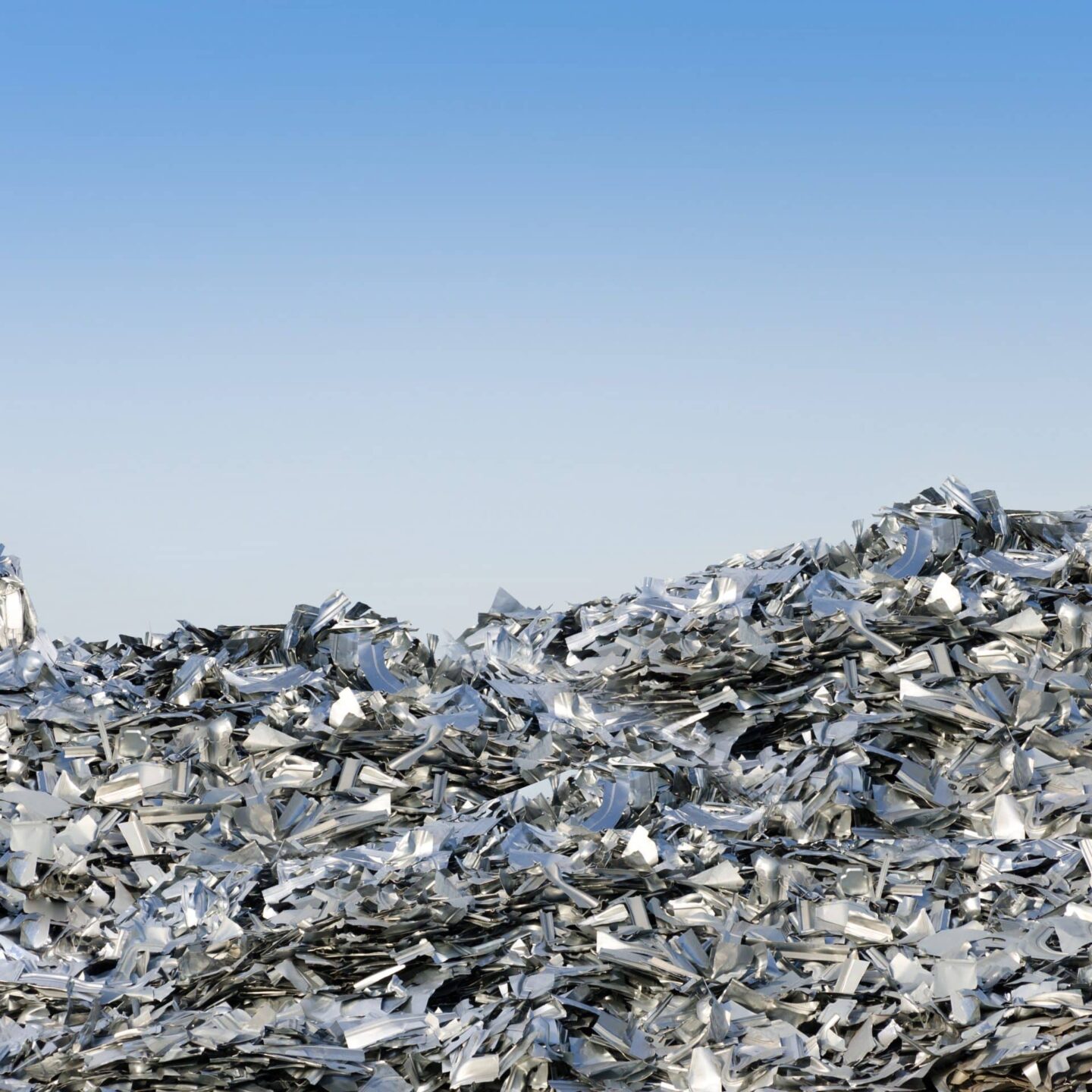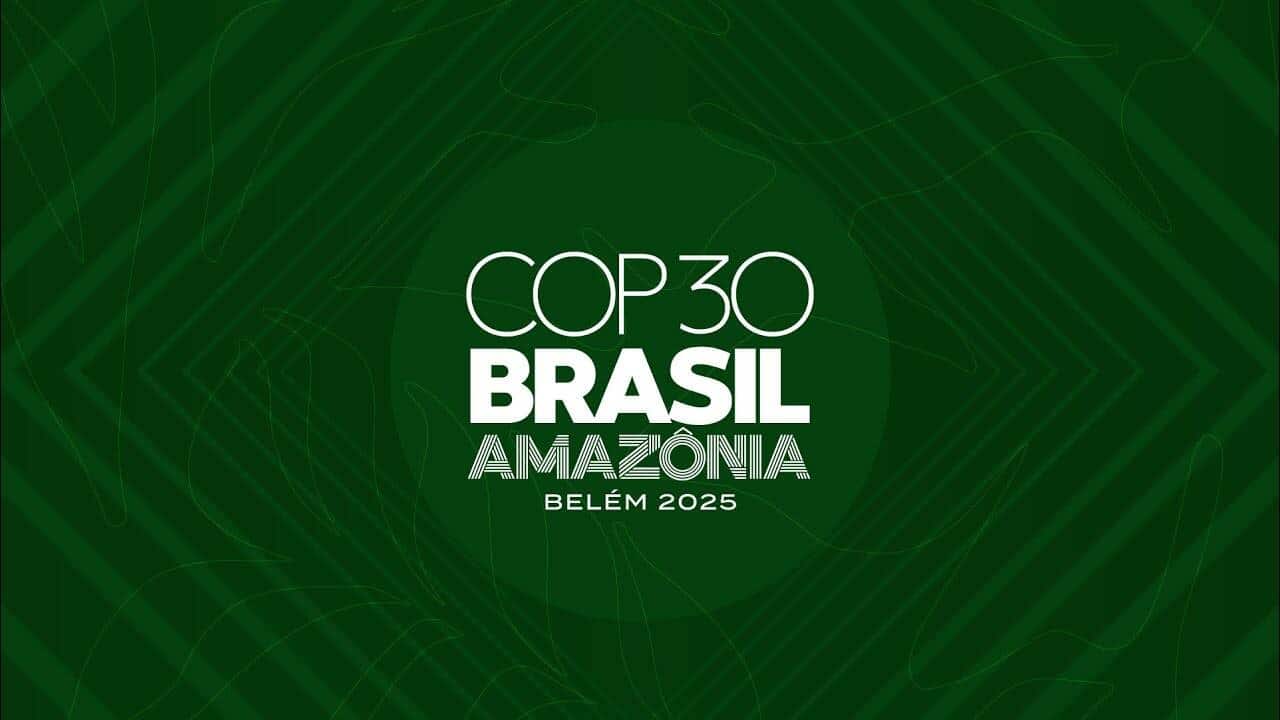A major panel discussion at COP30, hosted by the International Aluminium Institute (IAI), the Aluminium Stewardship Initiative (ASI) and Associação Brasileira do Alumínio (ABAL) will highlight the crucial role of waste pickers in aluminium recycling and explore strategies for integrating them into mainstream recycling frameworks.
The IAI is spearheading collaborative efforts at COP30 to drive knowledge sharing, technological innovation, and financial mobilisation across the aluminium sector. To this end, the session, “People Driving the Circular Economy: Integrating Waste Pickers in Aluminium Recycling,” will address how millions of informal workers underpin the success of global recycling efforts, yet remain largely invisible in climate policy and finance conversations.
While the aluminium industry provides direct employment to 1.6 million people worldwide, between 15 and 20 million waste pickers operate informally, collecting and sorting post-consumer aluminium, which helps keep recycling rates high and emissions low. Their work is fundamental to the circular economy, yet these workers frequently lack access to the benefits and protections afforded by formal employment structures.
The panel of industry experts will:
- Explore practical approaches to integrating waste pickers into established recycling markets, ensuring alignment with international standards for ethical and inclusive material recovery.
- Discuss innovative pilot programmes that are already underway, such as the CARE initiative in Colombia. Spearheaded by the ASI with support from the ISEAL Innovations Fund, CARE is testing new models that combine training, economic incentives, and supply chain transparency to create pathways for waste pickers to enter formal markets.
- Examine how to optimise climate action frameworks and responsible sourcing standards to better acknowledge and support the contributions of waste pickers, creating more resilient and equitable value chains for recycled materials.
Marlen Bertram, Director of Scenarios and Forecasts at the International Aluminium Institute (IAI), says: “Meeting ambitious global recycling targets requires every stakeholder across the aluminium value chain to work in concert. From primary producers to end-users, and crucially including the waste pickers, we must build systems where everyone’s contribution is recognised and supported. Industry-wide alignment on responsible recycling practices is essential if we are to deliver on both our climate commitments and our obligation to ensure no one is left behind in the transition to a circular economy.”
Gabriel Carmona Aparicio, Circularity Research Manager at the Aluminium Stewardship Initiative (ASI), says: “Achieving a truly circular aluminium value chain requires recognition of all actors contributing to post-consumer material recovery. At ASI, we are advancing practical approaches to support the formal inclusion of informal waste pickers in recycling systems. This work contributes to strengthening the social dimension of circularity and aligning recycling practices with international expectations on responsible sourcing.”
Janaina Donas at Associação Brasileira do Alumínio (ABAL), says: “Brazil and South America are home to vibrant informal recycling networks that have long been the backbone of our region’s circular economy. As we host COP30 in Belém, we have a unique opportunity to showcase how we can lead the way in creating inclusive recycling systems that honour the dignity and expertise of waste pickers while strengthening our collective climate response. Their integration into formal markets is not just an economic imperative, it’s a matter of social justice and environmental effectiveness.”
Panel speakers:
Gabriel Carmona Aparicio, Circularity Research Manager at Aluminium Stewardship Initiative
Severino Francisco de Lima Junior, President at International Alliance of Waste Pickers
Sandrine Duquerroy Delesalle, Vice President Global Sustainability & External Affairs at Crown Holdings
Adalberto Maluf, National Secretary of Urban Environment, Water Resources and Environmental Quality at the Ministry of Environment and Climate Change, Brazil

-ENDS-






